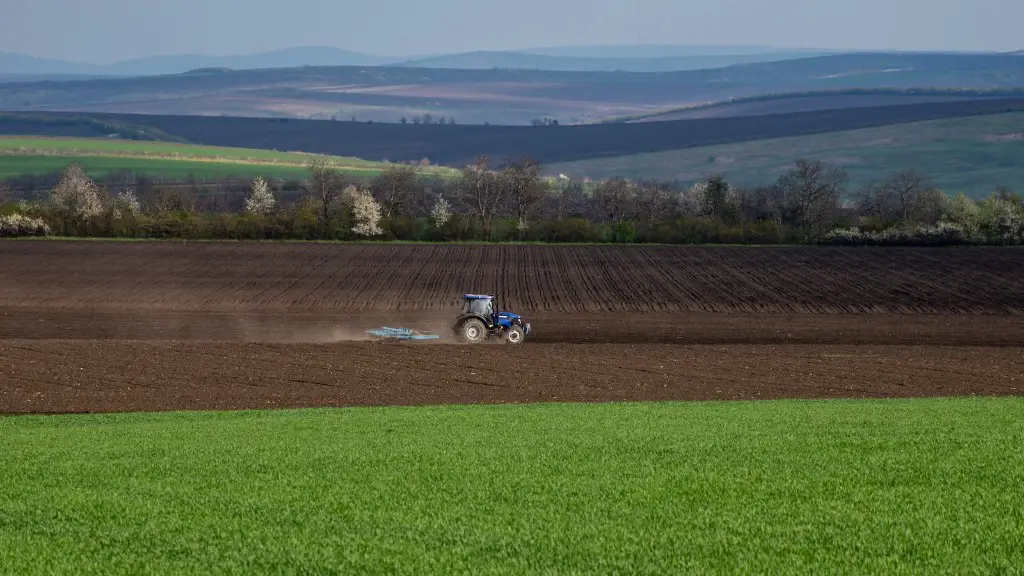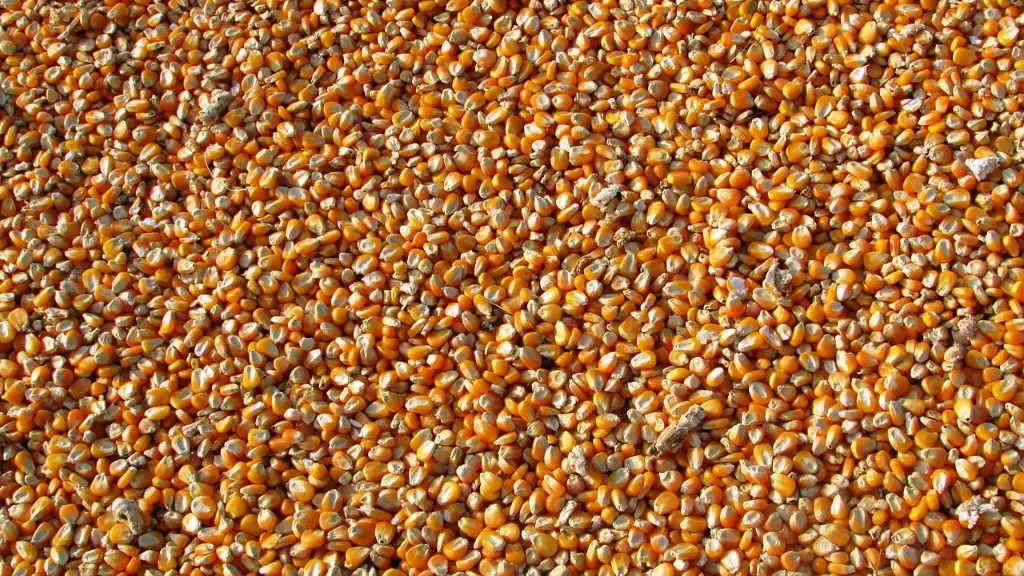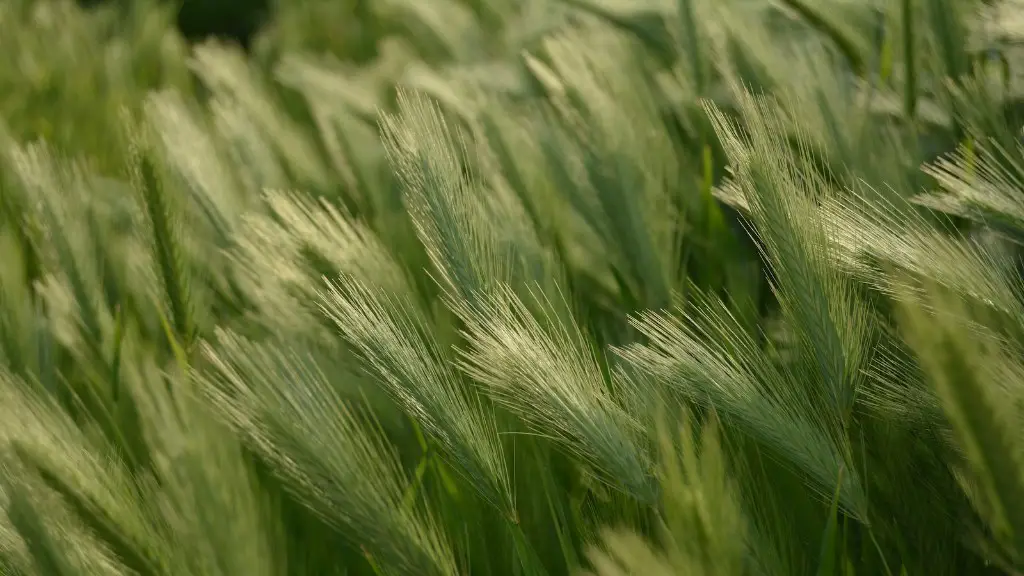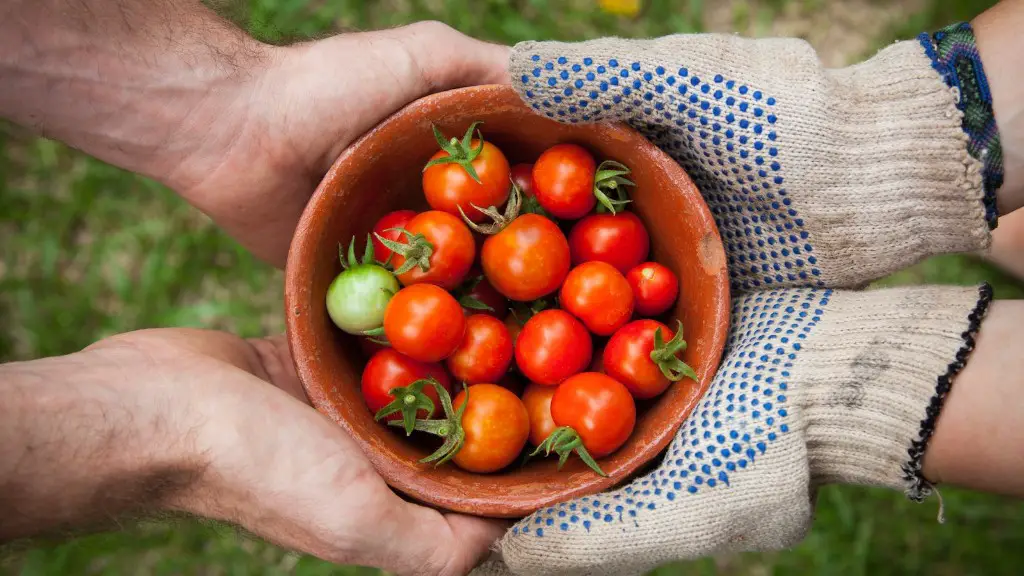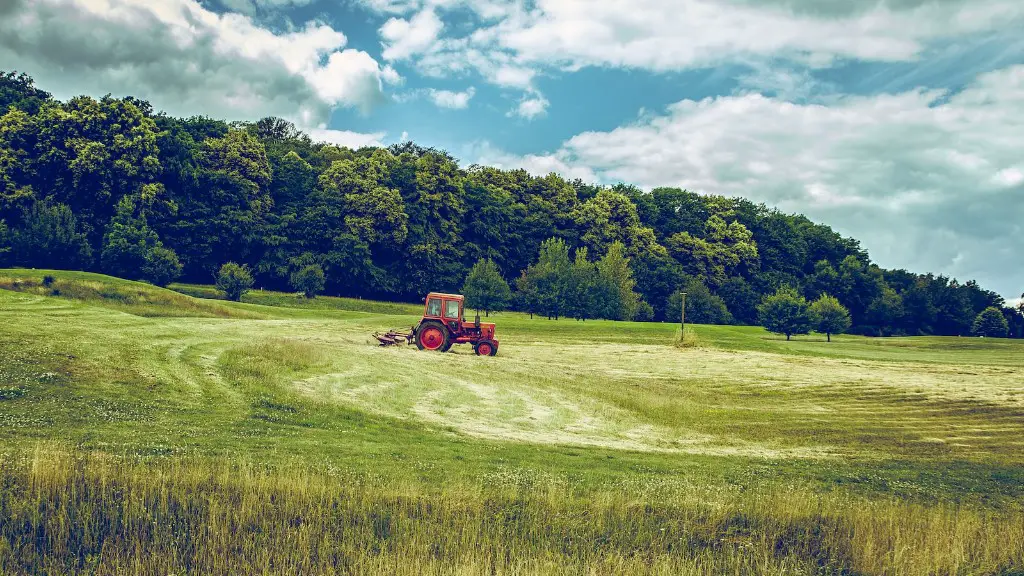Biodiversity is important to agriculture for a number of reasons. First, it helps to ensure that crops are pollinated and that pests are controlled. Second, it provides a source of genetic diversity that can be used to improve crops. Third, it helps to support soil health and ecosystems that provide other services to agriculture.
Biodiversity is important to agriculture for a number of reasons. First, healthy ecosystems with a diversity of plant and animal species are more resilient to pests and diseases, and can better withstand environmental stresses like drought and floods. Second, a diversity of crop and livestock breeds makes agriculture more productive and resilient to changing conditions, as different breeds may have different strengths and weaknesses. Finally, a diversity of wild plants and animals can provide important ecosystem services to agriculture, such as pollination, soil fertility, and pest control.
How does biodiversity help agriculture?
Biodiversity is important to agriculture for many reasons. It provides the raw materials for food production, and makes it possible for crop plants to resist pests and diseases. Different types of crops have different levels of resistance and susceptibility to pests and diseases, so a diversity of crops is important to ensure that some crops will always be resistant to the pests and diseases that are present in any given environment.
Agricultural biodiversity is important for food and agriculture. It includes crops, wild plants, trees, pastures, and medicinal plants. This diversity is important for maintaining ecosystem services, providing food and other products, and for cultural reasons.
What is the link between agriculture and biodiversity
Agriculture is the main driver of biodiversity loss. It destroys natural habitats and releases pollutants, including greenhouse gases, which contribute to climate change. Agricultural expansion is driven by growing populations and changing consumption patterns. These trends are likely to continue, which means that the impacts of agriculture on biodiversity will become increasingly severe.
Biodiversity is important for the health of an ecosystem. It ensures that there is a balance of different species so that the ecosystem can function properly. A high level of biodiversity means that there is a greater variety of species present, which can provide a buffer against environmental changes.
What is 3 example of biodiversity?
Biodiversity is the variety of all life forms on Earth. It includes the different plants, animals, and microorganisms that make up our ecosystems. These three levels of biodiversity are important because they all play a role in the health and function of our planet.
Genetic diversity is the variety of genes within a species. This is important because it allows a species to adapt to its environment and helps to keep the population healthy.
Species diversity is the variety of different species in an ecosystem. This is important because each species has a unique role to play in the ecosystem and helps to keep it balanced.
Ecosystem diversity is the variety of different ecosystems on Earth. This is important because each ecosystem has a different combination of resources that helps to support the life within it.
Agricultural biodiversity is extremely important for the sustainable production of food. It helps to ensure that crops are resistant to pests and diseases, and that soils are healthy and productive. Additionally, agricultural biodiversity provides a wide range of ecosystem services, such as pollination and soil stabilization.
What is the meaning of biodiversity in agriculture?
Agricultural biodiversity is important for food security and nutritious diets, as well as for the sustainable management of natural resources. A diversity of crops and livestock helps to ensure that food production is resilient to pests and diseases, and that farmers can adapt to changing environmental conditions.
In recent years, there has been a decline in the variety of crops and livestock raised globally. This is a cause for concern, as it reduces the options available to farmers and increases the risk of food insecurity.
There are many ways to conserve and promote agricultural biodiversity. One key way is to support small-scale farmers and indigenous peoples, who often have a wealth of knowledge about local plant and animal species. Another is to promote agroforestry, which integrates trees into farmland and can help to restore degraded ecosystems.
Policies and regulations can also play a role in supporting agricultural biodiversity. For example, setting minimum standards for the diversity of crops grown in a particular area can help to ensure that farmers have a greater range of options to choose from.
By increasing the diversity of crops and livestock raised, we can make food production more resilient to the challenges of a changing climate and a growing population. Agricultural biodiversity is an essential part of the solution to meeting the world
Biodiversity is essential to the wellbeing of human and animal life. We rely on nature for food, clean water, and medicines. Biodiversity also protects us from flooding and other extreme weather conditions.
What are 5 reasons why biodiversity is important
Biodiversity is essential for the proper functioning of ecosystems. It provides vital functions such as soil fertilization, nutrient recycling, pest and disease regulation, erosion control and crop and tree pollination. Biodiversity is under threat from human activities such as habitat destruction, overexploitation, pollution and climate change. We must take action to protect biodiversity and ensure that ecosystems continue to function properly.
Biodiversity plays an important role in our lives, providing resilience against stress, support for livelihoods, and regulation of disease. It also contributes to our physical, mental, and spiritual health and social well-being. We must protect and conserve biodiversity to ensure a healthy planet and a bright future for all.
How does biodiversity affect an ecosystem?
Biodiversity is the variety of life in a given area. It can refer to the number of different species, the number of different ecosystems, or the number of different genes.
The stability of an ecosystem is determined by its capacity to resist disturbance and to recover from perturbations. Ecosystems with a greater diversity of species and a greater variety of different types of interactions are more stable than those with fewer species and fewer types of interactions. For example, an ecosystem with many predators and many prey species is more stable than one with only a few predators and only a few prey species.
Species with high genetic diversity are more likely to survive environmental changes than those with low genetic diversity. For example, if a new disease emerges, species with high genetic diversity are more likely to have individuals that are resistant to the disease.
In general, greater biodiversity leads to greater stability.
Biodiversity is essential for the survival of livelihoods within it. Soil fertilization, nutrient recycling, pest and disease regulation, erosion control, and crop and tree pollination are all provided by biodiversity. Without it, we would not be able to survive.
What happens if biodiversity is lost
Biodiversity is essential for the health of the planet and for our own lives. A loss of biodiversity means that we will face a future with less food, more disease, and less fresh water. This is a very serious issue that we must all take seriously.
Biodiversity is essential to human life and wellbeing. It provides us with the food, fuel, shelter, and medicine we need to survive. Additionally, ecosystems provide crucial services such as pollination, seed dispersal, climate regulation, water purification, nutrient cycling, and control of agricultural pests. These services are vital to our survival and wellbeing.
What are 6 reasons why biodiversity is important?
Biodiversity preservation is important for a number of reasons. First, biodiversity is responsible for the productivity of ecosystems. Without biodiversity, ecosystems would not be able to function properly, leading to a decrease in the overall quality of life on earth. Second, biodiversity is the source of all medical discoveries. Every new medical discovery is a result of biodiversity – without it, we would not have the resources to develop new treatments and therapies. Third, biodiversity is responsible for the natural beauty and recreation that we enjoy on earth. Without biodiversity, the earth would be a far less interesting and enjoyable place to live. Fourth, biodiversity is essential for the survival of the human species. We rely on biodiversity for food, water, and other resources. If we do not preserve biodiversity, we are putting our own survival at risk. Fifth, biodiversity is essential for waste disposal and other important economic activities. Biodiversity provides us with the resources we need to properly dispose of waste and to generate income. Finally, biodiversity is important for the overall health of the earth. Biodiversity helps to stabilize the climate, purify the air and water, and to prevent soil erosion.
Biodiversity offers many natural services that are essential to our well-being. These services include protection of water resources, soils formation and protection, nutrient storage and recycling, pollution breakdown and absorption, contribution to climate stability, maintenance of ecosystems, and recovery from unpredictable events.
Biodiversity is essential to the functioning of natural systems and the provision of natural services. We depend on these services for our survival and well-being. Therefore, it is important to conserve and protect biodiversity.
Conclusion
There are many ways in which biodiversity is important to agriculture. For example, biodiversity can provide opportunities for new crop development, as well as for developing pest- and disease-resistant varieties. Additionally, biodiversity can help to improve soil health, and can also provide pollination services.
Biodiversity is important to agriculture for many reasons. It helps to ensure that crops are pollinated, it can help to control pests and diseases, and it can provide a source of food for animals.
